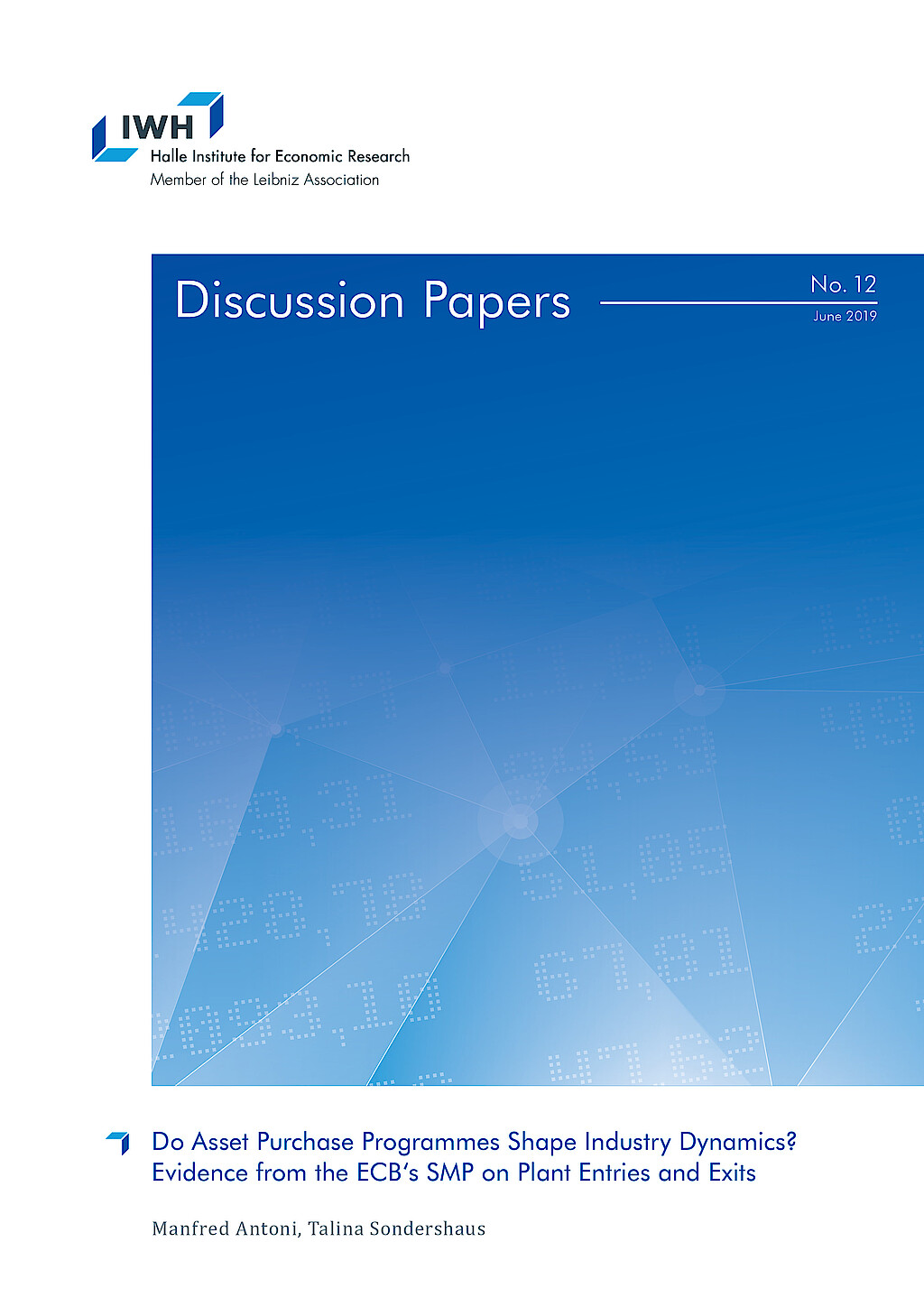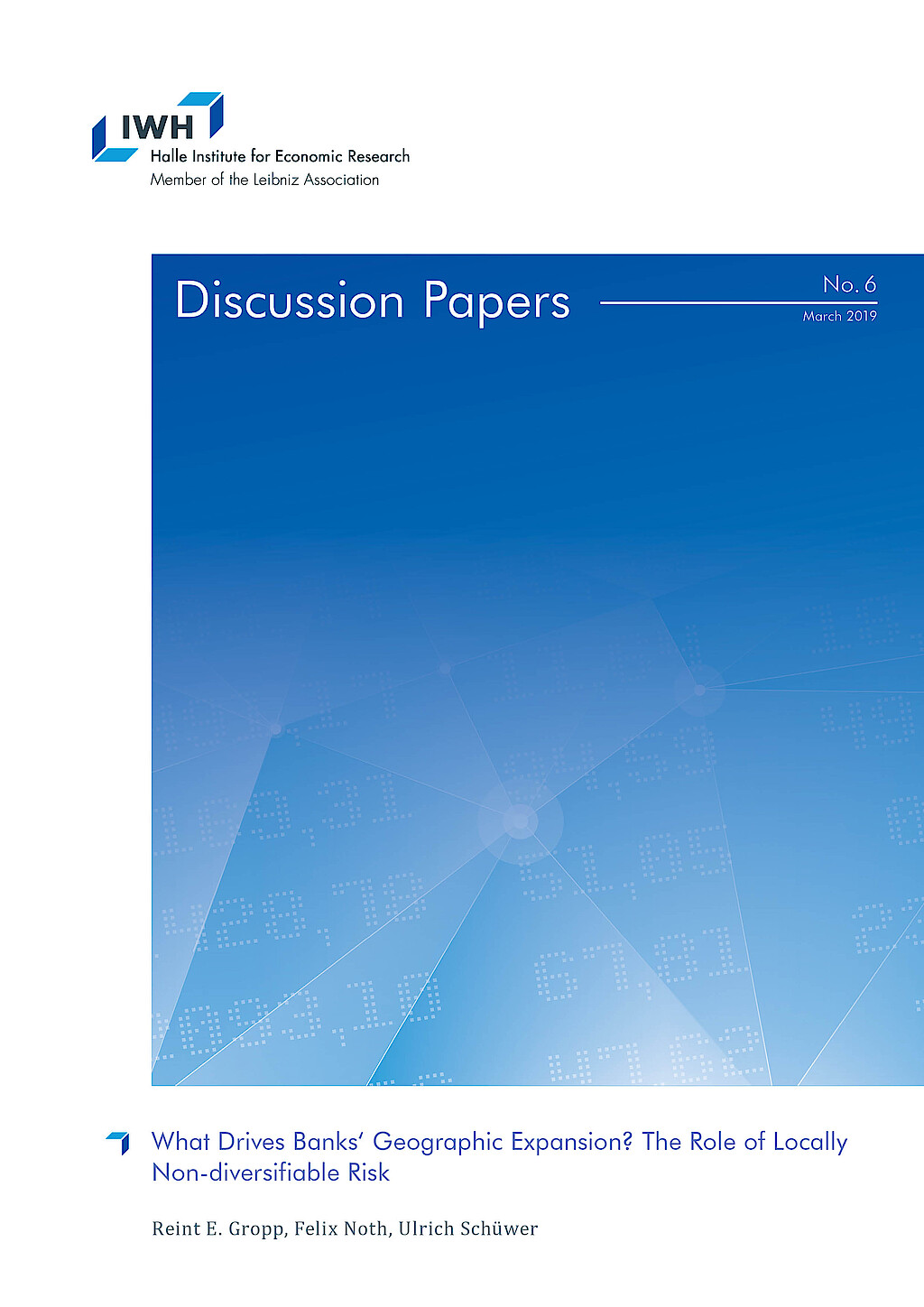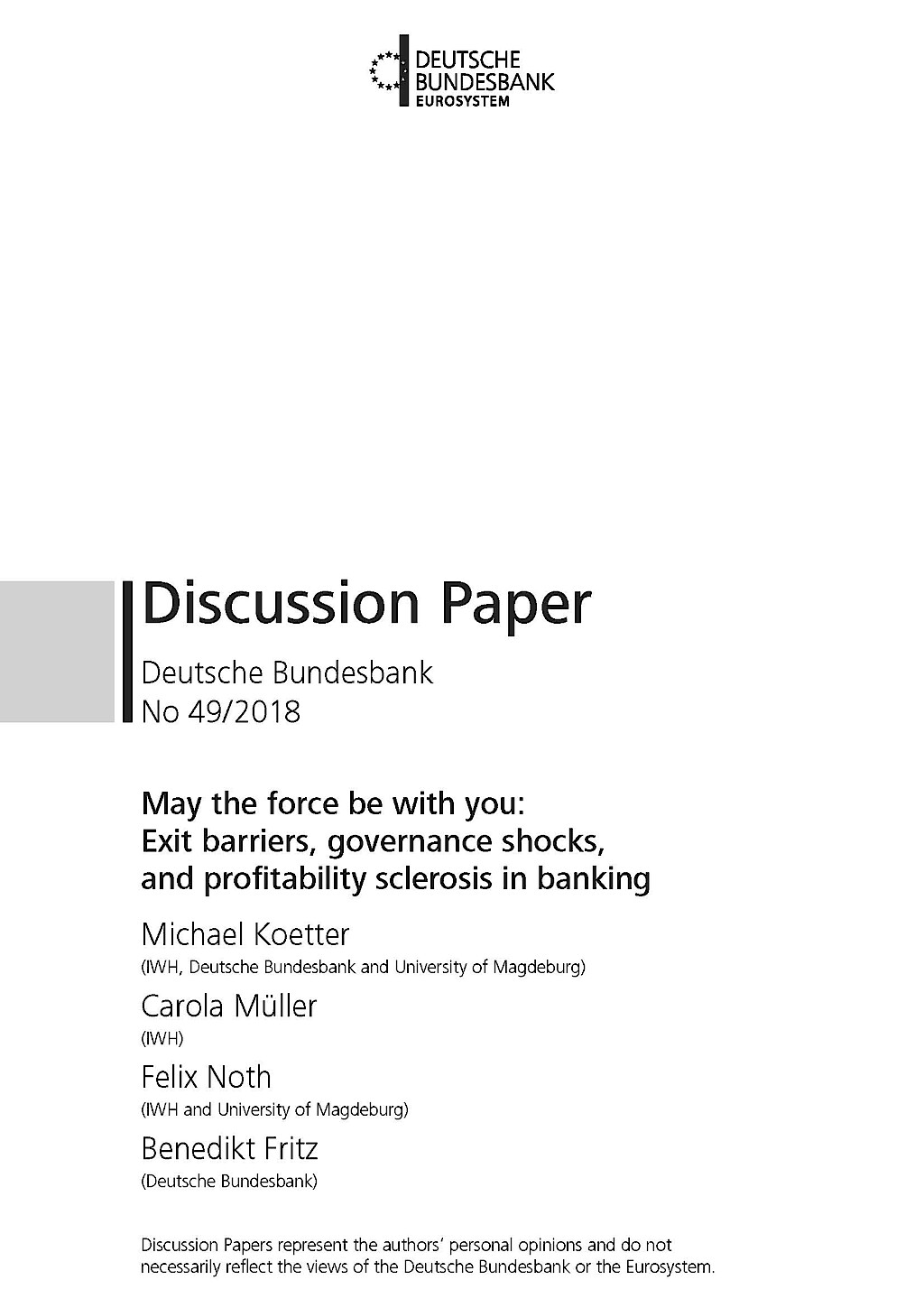Financial System Adaptability and Resilience
Financial Systems differ between countries. Their configuration is sticky and does not change suddenly. A well-functioning financial system is essential for economic development by efficiently allocating capital to the highest net present value projects.
However, the resilience of financial systems is frequently challenged. For example, the Great Financial Crisis of 2007/08 was a large blow from within the system: New financial instruments fuelled a credit bubble in the United States' housing markets, which almost brought down the global financial system when it eventually burst. The crisis triggered hefty government interventions and regulatory actions to make financial systems more resilient.
More frequently, challenges like the Covid-19 pandemic, the climate crisis and the green transition of economies, and the energy crisis triggered by the war in Ukraine, again highlight the crucial importance of resilient financial systems that adapt themselves and facilitate adequate responses to shocks of the real economy alike.
The research group “Financial System Adaptability and Resilience” investigates three critical aspects of financial system adaptability and resilience. First, it uses the occurrence of major natural disasters in the United States and Germany to analyse the impact of these events on financial systems. Natural disasters are becoming more frequent and more severe because of climate change. Therefore, evidence about the role of banks in providing funding to spur economic recovery is critical.
Investigations across different configurations of financial systems, such as bank- vs. market-based economies (e. g., Germany vs. the United States), allow for highlighting which components of financial systems seem better equipped to increase financial systems resiliency.
Second, the climate crisis requires economies to transform production technologies in order to source sustainable and renewable energy inputs. By using micro-data on German plants and their headquarters' banking relationships and information about the local and federal state leading political parties in Germany, the group aims to investigate the effects of political preferences for the green transition. This group's research will thereby enhance our understanding how climate policies balance the necessary need to reduce emissions with the economic burden imposed on agents during any large-scale transition of societies.
Third, the group's research analyses the role of culture in economies. The idea is that various aspects of culture, like religion, can work as a device that holds societies together and facilitate economic transactions. Using well-established empirical laboratories coming from significant natural disasters (for example, Hurricane Katrina in 2005), the group investigates whether local economies with a higher cultural imprint coming from religion found it easier to recover faster. Other incidents for which culture can play a vital role are big corporate scandals.
Using the Volkswagen Scandal from 2015, research by this group analyses the essential role of cultural imprints for consumer reactions in responding to large corporate scandals. This is important since government and regulatory intervention tend to come late or insufficient to punish corporate wrongdoings.
Workpackage 1: Development of Financial Systems after Significant Natural Disasters
Workpackage 2: Financial Systems' Role in the Economies' Green Transition
Workpackage 3: Cultural Aspects within Financial Systems
Research Cluster
Financial Resilience and RegulationYour contact

- Department Financial Markets
EXTERNAL FUNDING
08.2022 ‐ 07.2025
OVERHANG: Debt overhang and green investments - the role of banks in climate-friendly management of emission-intensive fixed assets
The collaborative project “Debt Overhang and Green Investments” (OVERHANG) aims to investigate the role of banks in the climate-friendly management of emission-intensive fixed assets. This will identify policy-relevant insights on financial regulation, government-controlled lending and financial stability, as well as raise awareness among indebted stakeholders.
01.2015 ‐ 12.2019
Interactions between Bank-specific Risk and Macroeconomic Performance
07.2016 ‐ 12.2018
Relationship Lenders and Unorthodox Monetary Policy: Investment, Employment, and Resource Reallocation Effects
Leibniz Association
We combine a number of unique and proprietary data sources to measure the impact of relationship lenders and unconventional monetary policy during and after the European sovereign debt crisis on the real economy. Establishing systematic links between different research data centers (Forschungsdatenzentren, FDZ) and central banks with detailed micro-level information on both financial and real activity is the stand-alone proposition of our proposal. The main objective is to permit the identification of causal effects, or their absence, regarding which policies were conducive to mitigate financial shocks and stimulate real economic activities, such as employment, investment, or the closure of plants.
Refereed Publications

Investment and Internal Finance: Asymmetric Information or Managerial Discretion?
in: International Journal of Industrial Organization, No. 1, 2006
Abstract
This paper examines the investment-cash flow sensitivity of publicly listed firms in The Netherlands. Investment-cash flow sensitivities can be attributed to overinvestment resulting from the abuse of managerial discretion, but also to underinvestment due to information problems. The Dutch corporate governance structure presents a number of distinctive features, in particular the limited influence of shareholders, the presence of large blockholders, and the importance of bank ties. We expect that in The Netherlands, the managerial discretion problem is more important than the asymmetric information problem. We use Tobin's Q to discriminate between firms with these problems, where LOW Q firms face the managerial discretion problem and HIGH Q firms the asymmetric information problem. As hypothesized, we find substantially larger investment-cash flow sensitivity for LOW Q firms. Moreover, specifically in the LOW Q sample, we find that firms with higher (bank) debt have lower investment-cash flow sensitivity. This finding shows that leverage, and particularly bank debt, is a key disciplinary mechanism which reduces the managerial discretion problem.

Aggressive Orders and the Resiliency of a Limit Order Market
in: Review of Finance, No. 2, 2005
Abstract
We analyze the resiliency of a pure limit order market by investigating the limit order book (bid and ask prices, spreads, depth and duration), order flow and transaction prices in a window of best limit updates and transactions around aggressive orders (orders that move prices). We find strong persistence in the submission of aggressive orders. Aggressive orders take place when spreads and depths are relatively low, and they induce bid and ask prices to be persistently different after the shock. Depth and spread remain also higher than just before the order, but do return to their initial level within 20 best limit updates after the shock. Relative to the sample average, depths stay around their mean before and after aggressive orders, whereas spreads return to their mean after about twenty best limit updates. The initial price impact of the aggressive order is partly reversed in the subsequent transactions. However, the aggressive order produces a long-term effect as prices show a tendency to return slowly to the price of the aggressive order.

Distance, Lending Relationships, and Competition
in: Journal of Finance, No. 1, 2005
Abstract
We study the effect on loan conditions of geographical distance between firms, the lending bank, and all other banks in the vicinity. For our study, we employ detailed contract information from more than 15,000 bank loans to small firms comprising the entire loan portfolio of a large Belgian bank. We report the first comprehensive evidence on the occurrence of spatial price discrimination in bank lending. Loan rates decrease with the distance between the firm and the lending bank and increase with the distance between the firm and competing banks. Transportation costs cause the spatial price discrimination we observe.

The Impact of Technology and Regulation on the Geographical Scope of Banking
in: Oxford Review of Economic Policy, No. 4, 2004
Abstract
We review how technological advances and changes in regulation may shape the (future) geographical scope of banking. We first review how both physical distance and the presence of borders currently affect bank lending conditions (loan pricing and credit availability) and market presence (branching and servicing). Next we discuss how technology and regulation have altered this impact and analyse the current state of the European banking sector. We discuss both theoretical contributions and empirical work and highlight open questions along the way. We draw three main lessons from the current theoretical and empirical literature: (i) bank lending to small businesses in Europe may be characterized both by (local) spatial pricing and resilient (regional and/or national) market segmentation; (ii) because of informational asymmetries in the retail market, bank mergers and acquisitions seem the optimal route of entering another market, long before cross-border servicing or direct entry are economically feasible; and (iii) current technological and regulatory developments may, to a large extent, remain impotent in further dismantling the various residual but mutually reinforcing frictions in the retail banking markets in Europe. We conclude the paper by offering pertinent policy recommendations based on these three lessons.

Softening Competition by Inducing Switching in Credit Markets
in: Journal of Industrial Economics, No. 1, 2004
Abstract
We show that competing banks relax overall competition by inducing borrowers to switch lenders. We illustrate our findings in a two-period model with adverse selection where banks strategically commit to disclosing borrower information. By doing this, they invite rivals to poach their first-period market. Disclosure of borrower information increases the rival's second-period profits. This dampens competition for serving the first-period market.
Working Papers

Do Asset Purchase Programmes Shape Industry Dynamics? Evidence from the ECB's SMP on Plant Entries and Exits
in: IWH Discussion Papers, No. 12, 2019
Abstract
Asset purchase programmes (APPs) may insulate banks from having to terminate relationships with unproductive customers. Using administrative plant and bank data, we test whether APPs impinge on industry dynamics in terms of plant entry and exit. Plants in Germany connected to banks with access to an APP are approximately 20% less likely to exit. In particular, unproductive plants connected to weak banks with APP access are less likely to close. Aggregate entry and exit rates in regional markets with high APP exposures are also lower. Thus, APPs seem to subdue Schumpeterian cleansing mechanisms, which may hamper factor reallocation and aggregate productivity growth.

‘And Forgive Us Our Debts’: Do Christian Moralities Influence Over-indebtedness of Individuals?
in: IWH Discussion Papers, No. 8, 2019
Abstract
This paper analyses whether Christian moralities and rules formed differently by Catholics and Protestants impact the likelihood of households to become overindebted. We find that over-indebtedness is lower in regions in which Catholics outweigh Protestants, indicating that Catholics‘ forgiveness culture and a stricter enforcement of rules by Protestants serve as explanations for our results. Our results provide evidence that religion affects the financial situations of individuals and show that even 500 years after the split between Catholics and Protestants, the differences in the mind-sets of both denominations play an important role for situations of severe financial conditions.

What Drives Banks‘ Geographic Expansion? The Role of Locally Non-diversifiable Risk
in: IWH Discussion Papers, No. 6, 2019
Abstract
We show that banks that are facing relatively high locally non-diversifiable risks in their home region expand more across states than banks that do not face such risks following branching deregulation in the 1990s and 2000s. These banks with high locally non-diversifiable risks also benefit relatively more from deregulation in terms of higher bank stability. Further, these banks expand more into counties where risks are relatively high and positively correlated with risks in their home region, suggesting that they do not only diversify but also build on their expertise in local risks when they expand into new regions.

Politics, Banks, and Sub-sovereign Debt: Unholy Trinity or Divine Coincidence?
in: Deutsche Bundesbank Discussion Paper, No. 53, 2018
Abstract
We exploit election-driven turnover in State and local governments in Germany to study how banks adjust their securities portfolios in response to the loss of political connections. We find that local savings banks, which are owned by their host county and supervised by local politicians, increase significantly their holdings of home-State sovereign bonds when the local government and the State government are dominated by different political parties. Banks' holdings of other securities, like federal bonds, bonds issued by other States, or stocks, are not affected by election outcomes. We argue that banks use sub-sovereign bond purchases to gain access to politically distant government authorities.

May the Force Be with You: Exit Barriers, Governance Shocks, and Profitability Sclerosis in Banking
in: Deutsche Bundesbank Discussion Paper, No. 49, 2018
Abstract
We test whether limited market discipline imposes exit barriers and poor profitability in banking. We exploit an exogenous shock to the governance of government-owned banks: the unification of counties. County mergers lead to enforced government-owned bank mergers. We compare forced to voluntary bank exits and show that the former cause better bank profitability and efficiency at the expense of riskier financial profiles. Regarding real effects, firms exposed to forced bank mergers borrow more at lower cost, increase investment, and exhibit higher employment. Thus, reduced exit frictions in banking seem to unleash the economic potential of both banks and firms.



















